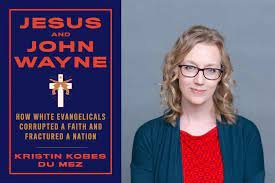Why America Hates Its Children
As a young father and pastor in evangelical circles (a long time ago), I followed James Dobson, a Christian psychologist and founder of Focus on the Family. Even then, I wondered about his ideas on child discipline and male roles in the family. I came to learn that Dobson, with others in “evangelical” circles, helped create a movement where white male patriarchy held central power. That worldview – what they call “a biblical worldview,” but many of us do not – drove political decisions that kept the U.S. from protecting children and women all in the name of “family values.”
A recent headline caught my attention: “Why America hates its children,” with this tagline: “Kids are worse off in America than in any other rich country … by design.” Lydia Kiesling says that “virtually every other industrialized nation provides more government aid for their children than America does.” The “design” comes from this powerful conservative movement that claims religious – “Christian” and “biblical” – support for the idea that parents (especially fathers) have God-given responsibility for children, and the government should not usurp their power.
“On the surface,” Kiesling writes, “America has always professed to love its children, and those who raise them. Women are told from birth that being a mother is ‘the most important job in the world.’ … But in practice, the rhetoric exalting motherhood has served not as a means for supporting children but as a tool for keeping women at home — while fending off demands for a broader and more supportive system of child-rearing.”
Our national history shows a lack of concern for, even neglect of, both women and children, all by design of both men and women who think that white male patriarchy must be protected and that all responsibility for the care of children belongs to parents (even when the parents neglect and abuse their children). Kiesling tells the history and statistics of this national folly.
“For a brief moment,” she writes, “the pandemic threw America's grim provisions for children into stark relief….In 2021, as childcare costs soared by more than 40%, Congress provided a massive cash infusion to states to stabilize childcare and supplied parents with both cash and an additional tax refund to support their kids. Seemingly overnight, child poverty dropped by 40%. But the much-needed interventions were short-lived. When emergency federal subsidies expired last fall … an estimated 3 million kids suddenly found themselves once again without childcare. And even with irrefutable evidence of the expanded child tax credit's success — and loud exhortations by policy organizations, faith leaders, and parents — Congress voted to end it as well. As a result, child poverty jumped from 5% in 2021 to more than 12% in 2022.”
In Jesus and John Wayne, Christian historian Dr. Kristin Kobes Du Mez summarizes the conservative movement’s “worldview” through the lens of what cognitive linguist George Lakoff has written: “Morality is imagined through metaphor, and family metaphors reside at the core of contemporary political worldviews; whereas liberals favor a nurturing parent model, conservatives embrace a strict father metaphor. At the center of Dobson’s worldview—and that of many conservative evangelicals—was the strict enforcement of patriarchal authority. For both Dobson and [Bill] Gothard, the problems of the modern family, and of society writ large, could be traced to the erosion of patriarchal power. Within both separatist and ‘respectable’ wings of modern evangelicalism, then, a shared defense of patriarchy contributed to an emerging cultural identity, and to a growing commitment to political activism. Over time, this alliance would begin to dictate the boundaries of evangelicalism itself.” (Chapter 4, pp. 86-87, Kindle edition)
I encourage you to read the article, learn more about George Lakoff’s views on family metaphors, and read Dr. DuMez’s book. We need more people who understand why “America hates its children” and will speak out to change the future for our children.


